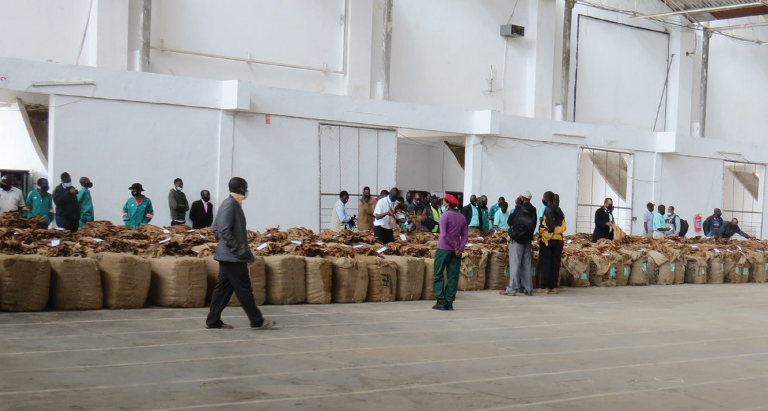No one in his right mind will dispute the fact that Malawi’s economy is in a sorry state. Inflation has risen to about 23 percent, the country is at risk of debt overhang and growth will be subdued. It is, therefore, concerning that the situation could get worse.
The Ministry of Agriculture earlier reported that Malawi’s maize output declined by 18.9 percent in the 2021/22 farming year because of a combination of factors like drought, tropical cyclones Ana and Gombe and an inadequate supply of subsidised fertiliser
Production fell to 3.7 million metric tonnes from 4.6 million metric tonnes in the 2020/21 farming season, according to the third round of the 2021/22 Agricultural Production Estimate Survey (APES).
In an interview with Reuters, Ministry of Agriculture spokesperson Gracian Lungu expressed concern that the shortage of maize could affect the country’s overall food security. The positive is that the output of some food crops, such as groundnuts, sesame and soya beans, increased over the season.
The concerns should not be taken lightly considering the country’s headline inflation is largely influenced by food prices, which contribute a weight of 50.8 percent to the Consumer Price Index (CPI) basket compared to 49.2 percent from non-food prices.
Naturally, food inflation has a negative effect on national economies, but its effects are more pronounced in developing and agrarian countries like Malawi, where the majority of the population spend a large portion of their income on food.
It does not bode well for the country that some agriculture experts are expecting a tough season in 2022/23. The rise in the price of fertilizer induced by the Russia-Ukraine war is expected to complicate the implementation of the Affordable Inputs Programme, Malawi’s premier subsidy programme.
Collectively, Russia, Ukraine and Belarus produce about 10 percent of the world’s nitrogen and phosphorus fertilizers, as well as 35 percent of the world’s potassium, according to local think-tank, the Mwapata Institute.
The institute predicts that the supply of fertilizer on the global market will drop by eight to 10 percent, maybe even perhaps more for those which include potassium. This will further add to the cost of fertilizer in Malawi.
The prices have risen so much that the money that the Tonse Alliance-led administration set aside to import fertilizer might not be enough to import fertilizer. Of course, the government retains the option of increasing the farmer’s contribution or reducing the number of beneficiaries.
But it is important to note that those options are not exactly preferable for local farmers. The problem here is two-fold; the beneficiaries of the AIP, some of the poorest subsistence farmers, can buy less food with the money at their disposal.
Second, if they do not have enough fertilizer to grow crops for the next growing season, it may well mean that some vulnerable households will be pushed to the brink of food insecurity.
If the Tonse-led administration does not devise a lasting solution to the situation, Malawi will be at risk of a perpetual cycle of inflation. It is rather unfortunate that inflation is reducing farmers’ income at a time when farmers need to invest in agriculture to reduce the high food prices.
The impact on the national economy will probably be worse. Historically, inflation, if it goes beyond a certain threshold, has a negative impact on economic growth. It is reasonable to expect that the rise in fertilizer prices will reduce economic growth considering that more than 60 percent of Malawi’s export earnings come from agricultural products like tobacco, coffee and tea.
All in all, Malawi is facing stagflation, a situation where growth will be subdued and inflation will keep soaring. A prolonged period of inflation will inevitably result in higher interest rates as the central banks seek to tighten monetary policy to contain the rising prices.
It seems the best option for the government to stave off inflation and spur economic growth is to collaborate with commercial farmers.
It is an unpopular opinion, but the government should seriously consider providing direct support to commercial farmers to grow the food the country desperately needs for the next season. From a layman’s perspective, diverting some of the funds from the AIP and offering them as loans could work.
The post Malawians should brace for a tough time appeared first on The Nation Online.
 Moni Malawi
Moni Malawi 
